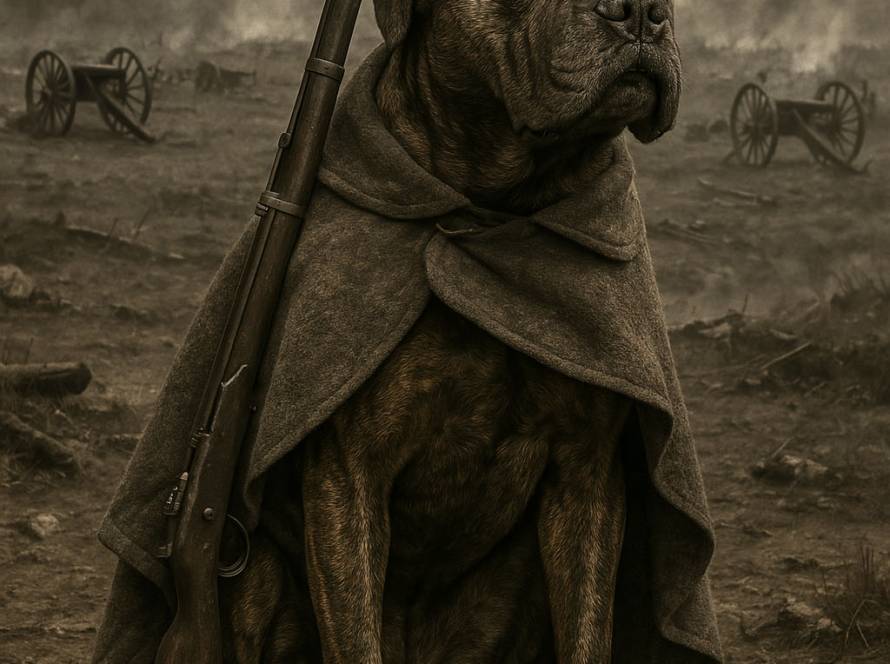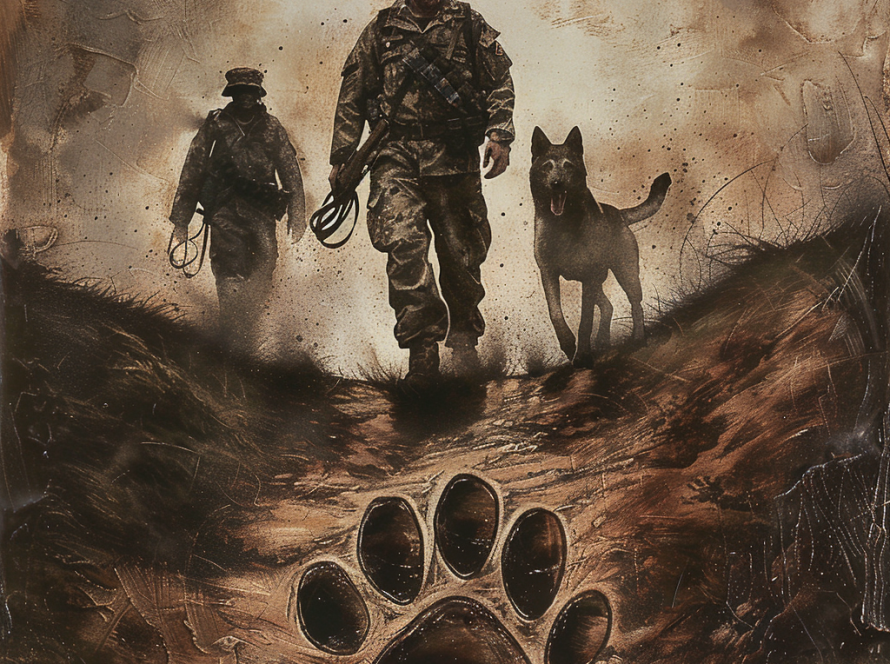At Warrior Dog Spirit, we draw inspiration from the long and valorous history of dogs in military service. While we often think of military working dogs as a modern phenomenon, the truth is that our four-legged companions have been serving alongside human warriors for millennia. Today, we’re turning back the pages of history to explore the role of war dogs in ancient Egypt, Greece, and Rome.
Egypt: Guardians of the Afterlife and Protectors in Life
The ancient Egyptians revered dogs, not just as companions and hunters, but as protectors in both life and death.
– Anubis: The jackal-headed god associated with mummification and the afterlife, highlighting the spiritual significance of canines.
– Royal Guards: Large breeds like the Pharaoh Hound and Armant were used to guard palaces and accompany armies into battle.
– Hieroglyphs: Depictions of dogs in military contexts have been found in ancient Egyptian art and writing, showcasing their martial role.
One fascinating account tells of Abutiu, a guard dog so valued that it received a formal burial near its royal master’s tomb, complete with linen wrappings, incense, and food offerings. This level of honor demonstrates the high esteem in which these early war dogs were held.
Greece: From Myth to Military Might
The Greeks incorporated dogs into their military strategies with enthusiasm and innovation.
– Mythological Roots: Greek mythology is rife with powerful canines, from Cerberus guarding the underworld to the hunting dogs of Artemis.
– Corinth’s Canine Corps: The city of Corinth was known for its use of war dogs, positioning them on the front lines to break up enemy formations.
– Alexander the Great: The famous conqueror’s beloved dog, Peritas, reportedly saved his life in battle against the Persians, demonstrating the direct impact these animals could have on military engagements.
A notable example of Greek war dogs in action comes from the Battle of Marathon in 490 BCE. A mastiff named Soter fought bravely alongside the Athenians against the Persians. Soter’s valor was so appreciated that he was honored with a silver collar inscribed with the words: “Soter, defender and savior of Athens.”
Rome: Canine Legionnaires
The Roman Empire, with its vast military machine, made extensive use of war dogs in various roles.
– Molossus Hounds: These large, powerful dogs were often fitted with spiked collars and armor, used to charge enemy lines and create chaos.
– Sentry Duties: Dogs were employed to guard military camps, their keen senses providing early warning against surprise attacks.
– Psychological Warfare: The sight and sound of fierce war dogs often had a demoralizing effect on enemy troops, especially those unfamiliar with such tactics.
One of the most striking examples of Roman war dogs comes from their invasion of Britain in 55 BCE. Julius Caesar’s writings mention the effectiveness of the large war dogs used by the native Britons in resisting the Roman forces. These dogs were likely ancestors of the modern mastiff, and their ferocity left a lasting impression on the Roman troops.
The Enduring Legacy
The use of dogs in these ancient civilizations laid the groundwork for the continued integration of canines in military operations throughout history. From these early roles as front-line combatants, sentries, and guardians, dogs would go on to serve in increasingly specialized capacities.
As we raise a glass of Warrior Dog Spirit whiskey, we’re not just savoring a fine spirit – we’re paying homage to a legacy that stretches back thousands of years. These ancient war dogs embodied the same qualities we celebrate today: loyalty, courage, and an unbreakable bond with their human companions.
In future posts, we’ll continue to explore how the role of military working dogs evolved from these ancient beginnings through medieval times, world wars, and into the modern era. Each era brings new stories of canine heroism, reminding us why these four-legged warriors are so deserving of honor and remembrance.
To the ancient allies who paved the way for today’s military working dogs – may their memory continue to inspire us all.
Raise your glass, and join us in saluting these earliest of warrior dogs!
A.E. Wolf
Founder, Warrior Dog Spirit Distillery






